We weren’t sure quite what to think about the recently-released trailer for The Imitation Game. We don’t know enough about either films or Alan Turing to give an authoritative opinion. James Grime, on the other hand, knows a lot about both…
The trailer for the highly anticipated new film about mathematician Alan Turing was released this week. Alan Turing was not only a mathematician, but also the father of computer science and World War II code breaker. The trailer itself looks fantastic and has me super excited to see the film when it is released this November.
[youtube url=https://www.youtube.com/watch?v=Fg85ggZSHMw]
The Imitation Game stars Benedict Cumberbatch as Alan Turing and Keira Knightley as Joan Clarke. Clarke herself was a mathematician, Bletchley Park code breaker and, briefly, Turing’s fiancée.
The script featured on Hollywood’s blacklist, a list of the best unproduced screenplays, and tells the story of Turing’s early days at Bletchley Park, his work breaking the infamous German Enigma code, and his relationship with Clarke. An early draft of the script caused concern that it over emphasised Turing and Clarke’s relationship, and was accused of “straightwashing” the story of Turing, who was later arrested and convicted for homosexuality.
After seeing the trailer I am more confident it’s going to be done right. So let’s break it down:
Nock: What did you do during the war?
Turing: I worked in a radio factory.
Nock: What did you really do during the war?
Turing: Are you paying attention?
Looks like the film is going to be framed by Turing’s arrest in 1952. Plus, Rory Kinnear adds five bonus points in my book.
And with that look, thousands of Cumberbitches develop strange feelings towards a mathematician. I know I did.
Stewart Menzies: If you speak a word of what I’m about to show you, you will be executed
And here we see Turing walking towards, is it Bletchley Park? Not when Turing was recruiting in 1938, so maybe some other location for the Government Code and Cypher School. Or probably the film is indulging in a little bit of time dilation as we also see Mark Strong as Stewart Menzies who was Chief of MI6 from 1939. The threat of execution for revealing the secret work of Bletchley Park was a very real one.
Turing: It’s beautiful
And there’s the source of all the trouble, the German Enigma machine, with its box of rotors and everything. Not that they had a machine at this point. At best they had replicas, but even I don’t expect them to explain the workings of an Enigma machine to the cinema-going audience while Cumberbatch looks at circuit diagrams. I agree, it is beautiful.
Matthew Goode as Hugh Alexander looks confused. That might be because he was head of the John Lewis research department at the time and didn’t reach Bletchley till 1940.
Gordon Welchman may have been a better choice and is strangely absent from the trailer. Welchman was Turing’s counterpart in that he was in charge of Hut 6 breaking army Enigma codes, while Turing was in charge of Naval codes in Hut 8. Welchman also worked with Turing to design the code breaking machines.
Hugh Alexander eventually took over the running of Hut 8 from Turing, became head of cryptanalysis at GCHQ and was a chess grand master. Also, did you know John Lewis has a research department. Working on advanced scatter cushion technology.
Hey, also maths on blackboards. Is that frequency of pairs and triplets of letters. That’s reasonable maths in the background.
Turing: It’s the greatest encryption device in history. The Germans use it for all major communications.
Indeed it was. The machine was used by all branches of the German military and it was one of the best cipher machines around at that time.
This looks like this is meant to be Hut 8, Turing and his team of researchers breaking the naval Enigma. I’m not sure they had actual Enigma machines on their desk as they worked though. Also, it’s World War II so GIANT MAP!
Denniston: Everyone thinks Enigma is unbreakable
Charles Dance as Commander Denniston, head of the Government Code and Cypher School. He had run the GC&CS for twenty years and knew his parsnips. It was commonly believed, including by Denniston, that Enigma was unbreakable.
Turing: Let me try and we’ll know for sure
Oh no he didn’t! Setting up some arrogance on the part of Turing. Also, this might be a good time for a comparison.
Charles Dance: ORLY?
Menzies: Mr Turing do you know how many have died because of Enigma?
Turing: No, I don’t.
Menzies: Three. While we’ve been having this conversation.
Incidentally, Turing was not so cold as to be unaware of the human cost of the war, and he publicly supported the asylum of Jewish refugees in the UK
Did I mention this is based on a true story?
Keira Knightley’s jaw enters a room. Followed by Keira Knightley. (Little bit rude! – Ed.)
Avengers Assemble!
This is sort of a line up of Turing’s research team. From left to right we have John Cairncross (played by Allen Leech), Turing (Cumberbatch), behind Turing is Jack Good (James Northcote) (sorry Jack Good, don’t blame me, blame the person who blocked the scene), Peter Hilton (Matthew Beard), Hugh Alexander (Matthew Goode), and Joan Clarke (Knightley).
Turing started working on the problem of the Naval Enigma on his own, then later joined by Tony Kendrick and Peter Twinn (not featured), and then over the next 18 months or so joined by Clarke, Alexander, Good and Hilton (in that order).
Slightly incongruous here is the inclusion of John Cairncross. Not only was he the last of this group to join Bletchley Park, but he worked in a different section of Bletchley breaking a different cipher entirely. He was also passing information to the Soviets. Can you say INTRIGUED!
Clarke: What is it that we’re really doing?
Turing: We’re going to break an unbreakable Nazi code.
Clarke: Oh
Looking at other comments on the trailer around the internet, I have seen some people react negatively to what they see as a plucky, female sidekick and love interest for Turing. However, Joan Clarke was a real person. Clarke was an able Cambridge undergraduate in mathematics, Welchman remembered her ability and recruited her for Bletchley Park. Initially Clarke was given clerical work, but was soon moved into Hut 8 to work with Turing. Clarke continued to work for GCHQ for many years after.
Turing and Clarke became very good friends. Turing would arrange their shifts so they could be working together, as well as spending a lot of their free time together. In the Spring of 1941 Turing asked Clarke to marry him, and the engagement even survived Turing’s admission of his homosexuality. Clarke was formally introduced to Turing’s family, Turing gave her an engagement ring, and there was talk of the future. But ultimately their engagement did not last beyond the Summer of 1941.
Turns out people who comment on the internet are sometimes wrong.

A shot of Turing running. In fact Turing was a very talented long distance runner. He would run for meetings from Bletchley to London (40 miles), and his marathon time was only 11 minutes short of the world record at the time. I wonder if his running skills will come in useful later in the film?
A listening station and a new message to decrypt.
Alexander: To pull off this genius routine one actually has to be a genius.
Turing was still a young man of 28 at this time, with many of the other Bletchley Park cryptographers being several years older than him. However, by this point Turing had already solved one of the great unsolved problems in 20th century mathematics, known as the Decision Problem, and laid the groundwork for computing machines.
Denniston: Why are you building a machine?
Turing: The machine will allow us to break every message and win the war
Turing doing some tinkering, and the final machine. The Bombe was like simultaneous Enigma machines, with deductions from one machine feeding into the others. The first Bombe machine was called Victory and finished in March 1940.
Alexander: You could help us. But you won’t.
Alexander throw a glass valve (?) at Turing. Not cool man. Things are getting tense. Let’s chill out for a bit with this beautiful shot of a sunset.
Turing to Denniston: You will never understand the importance of what I am creating here.
The film seems to be setting up Denniston as an antagonist to Turing, which is probably a great disservice to Denniston, who by all accounts understood the difficultly of the work, deliberately recruiting the professor type, and was proud of their achievements. Although the portrayal may be a more accurate reflection of the attitudes of some others in the military at the time.
Turing: I’m just a mathematician
Menzies: You’ve got more secrets than the best of them
Cumberbatch seems to be doing a great job portraying Turing’s shyness and awkwardness. And it is clear the gay issue will be a part of the film.
Some maths (not clear what) and some Most Secret documents!
After the war they had a big bonfire at Bletchley Park and burnt all the documents. Although Turing himself had moved on at this point.
Hey! Maybe that running does pay off later in the film!
The Bombe machine stops, and these crazy kids may have pulled it off.
The title by the way is Turing’s own name for what is now better known at the Turing Test, a test of whether a machine can impersonate a man. I expect these clever filmmakers have some double meaning in mind.
Clarke: Sometimes it is the people no one imagines anything of who do the things that no one can imagine.
That’s it for the UK trailer, but the US trailer has some more information, which a greater emphasis on his relationships with the others and extra INTRIGUE!:
[youtube url=https://www.youtube.com/watch?v=S5CjKEFb-sM]
Let’s break this down:
Denniston: Gentlemen, meet Mr Turing.
Turing: We’re each to work together then? I’m afraid these men would only slow me down.
Menzies: Popular at school were you?
Here we see Turing as the outsider. And he never did quite fit in at school.
Turing: You have six minutes to complete the task.
Menzies: Is it even possible?
Turing: No, it takes me eight.
Ten points to Gryffindor! Although I don’t believe Joan Clarke was recruited like this (I’m not sure anyone was). The Telegraph newspaper did organise a competition to complete their crossword in under twelve minutes. Successful contestants were then approached for a job at Bletchley.
Turing: I’m designing a machine that will allow us to break every message, every day, instantly.
Quite a claim, yet by the end of the war Turing’s Bombe machine could help the code breakers work out the daily Enigma setting in under twenty minutes – breaking the vast majority of messages. I think we’ll allow a little hyperbole, because it’s not much.
Now this is our first big clanger. But I think we can blame the people who make trailers for this one. The Bombe machine was not a computer, as it was an electro-mechanical machine capable of one job. There was another code breaking machine at Bletchley Park known as Colossus, but this machine was not designed to break Enigma code, but another cipher machine being used by Hitler and top level of the Nazi Party. That code was broken by a mathematician called Bill Tutte and Colossus built by an engineer called Tommy Flowers. Colossus is considered by some to be the world’s first programmable computer, (although there are about eleven candidates for that title).
Clarke: You’re going to need all the help you can get. And they are not going to help you if they do not like you.
Advice and life lessons from Joan Clarke. I wonder how that will go….
… not so well according to that right hook from Hugh Alexander. Who knew mathematicians were such good fighters.
Tensions leading to fisticuffs may be full on poppycock. They make good trailers though.
Denniston: Have you decrypted a single German message?
Turing: You will never understand the importance of what I am creating here!
Denniston: Our patience has expired.
Again, this does not sound like the Denniston who supported the work of the mathematicians he was in charge of. But does sound like the attitude of other Generals of the time.
The gang enjoying a bonfire and a beer. This may not have happened.
Turing: What are you doing? What’s going on?
John Cairncross: The navy thinks that one of us is a Soviet spy.
This looks like the catalyst for the navy to investigate Turing’s private life and unearth some secrets. This may not have happened.
SPOILER ALERT: Cairncross did it. Although he wasn’t caught until 1951.
Turing: What if I don’t fancy her in that way?
Cairncross: You can’t tell anyone Alan, it’s illegal.
You’re a fine one to talk about legalities and keeping secrets, Cairncross!
That’s a hell of a tag line though. I hope the publicity guy who thought of that one took the rest of the day off. Look, it made Alan Turing cry.
It’s not easy to tell much from the trailer, but it looks fantastic. Cumberbatch and Knightley seem to be doing a bang up job in their roles, and it’s a story that I think will be a big hit. Sure there are inaccuracies, but I think that is forgivable in a dramatisation of events. I think the film will actually inspire people to find out more about Turing, Enigma, and the work at Bletchley Park. November here we come!

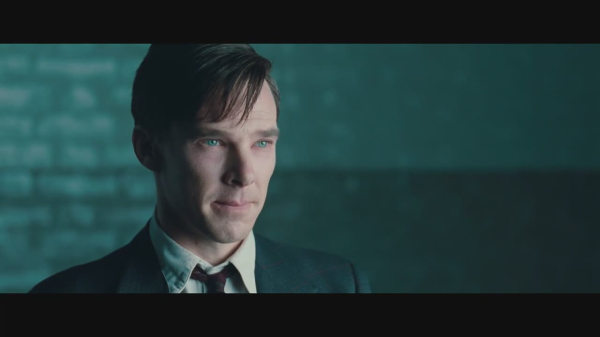
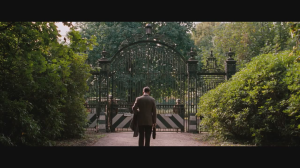
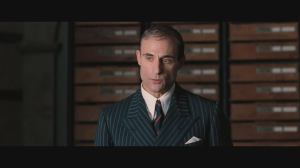
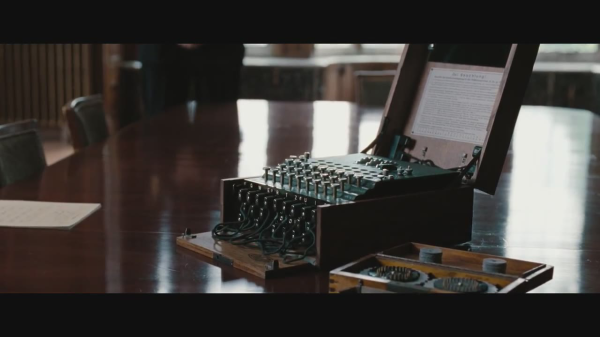
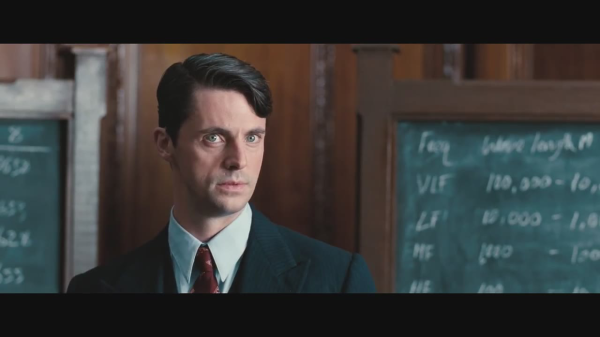
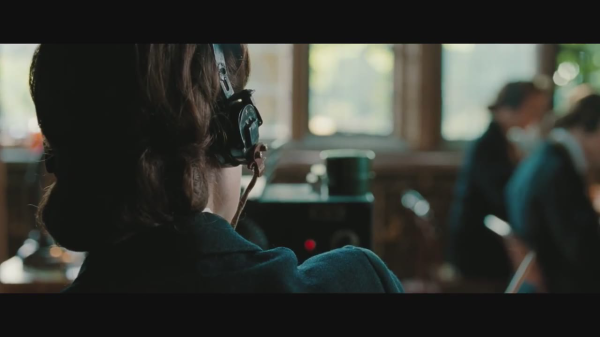
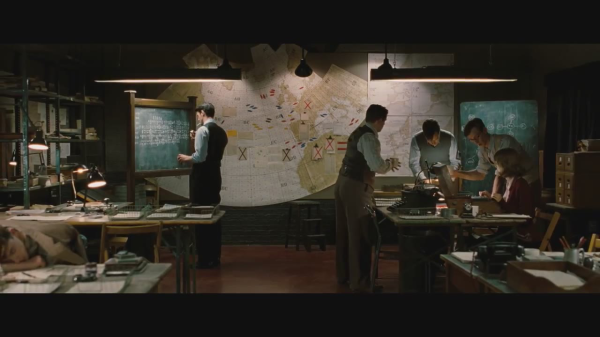
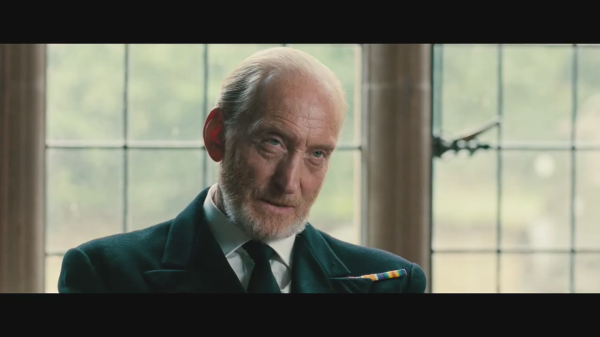
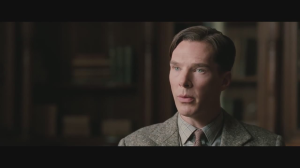
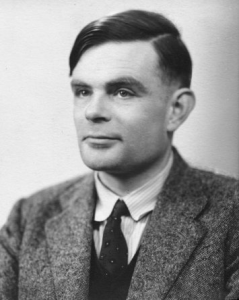
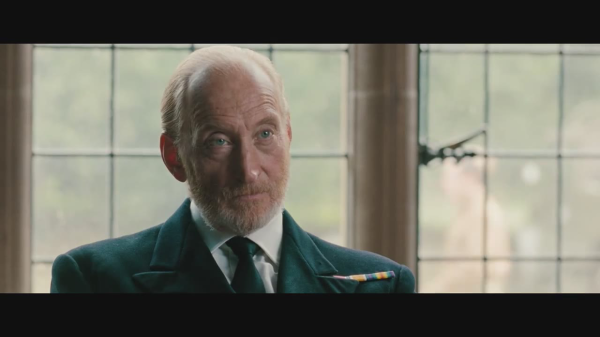
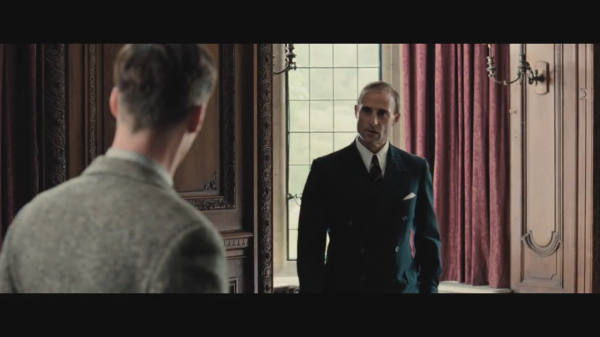
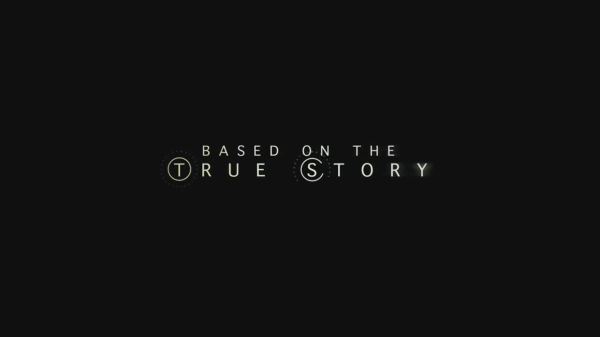
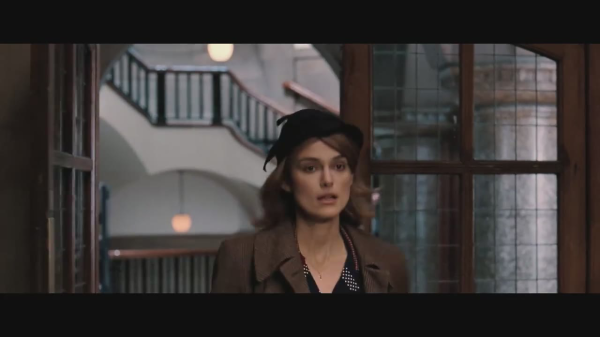
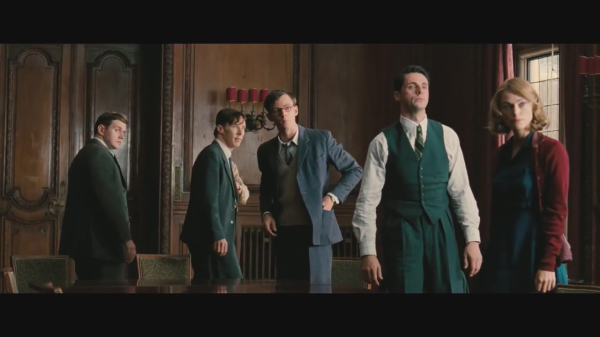
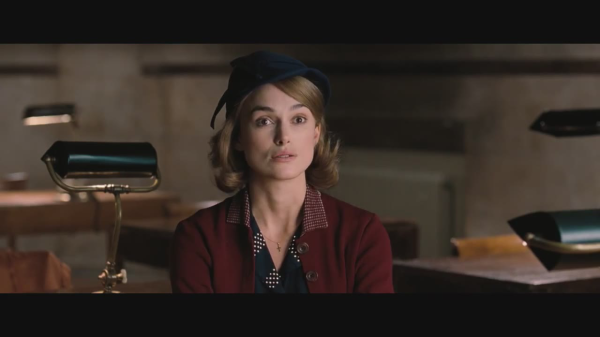
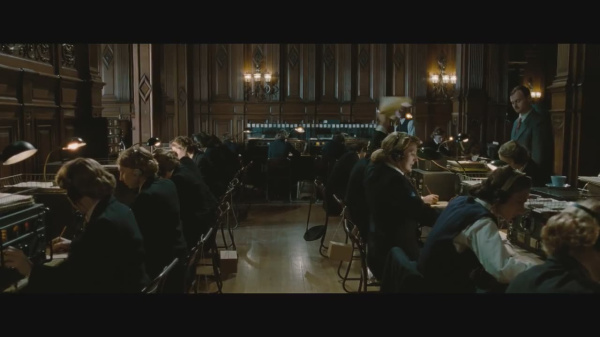
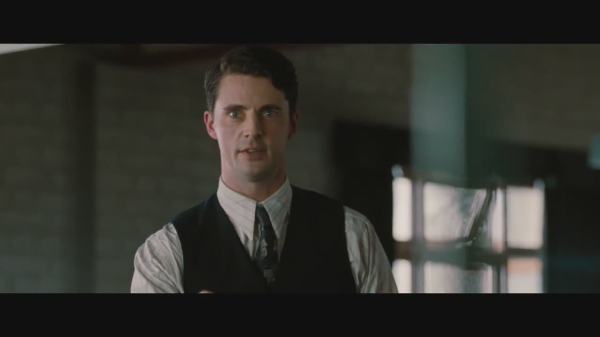
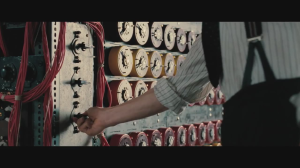
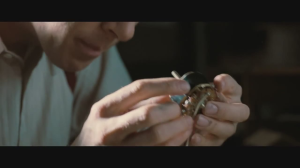
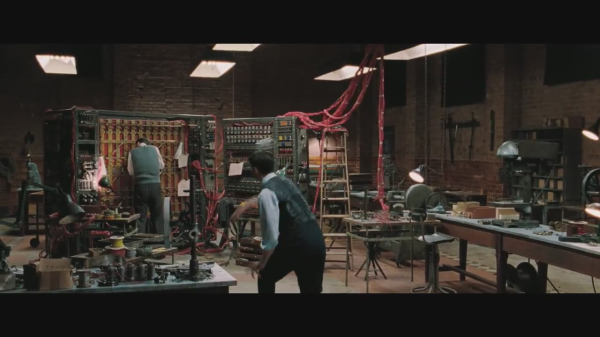

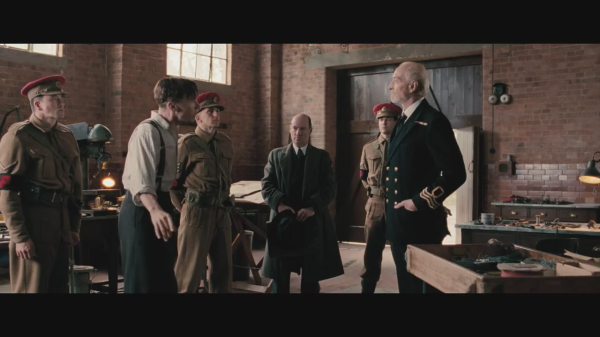
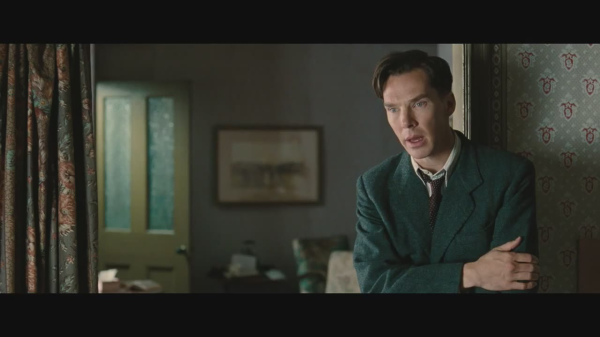
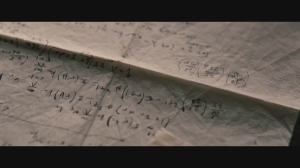
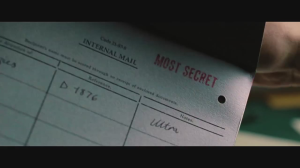
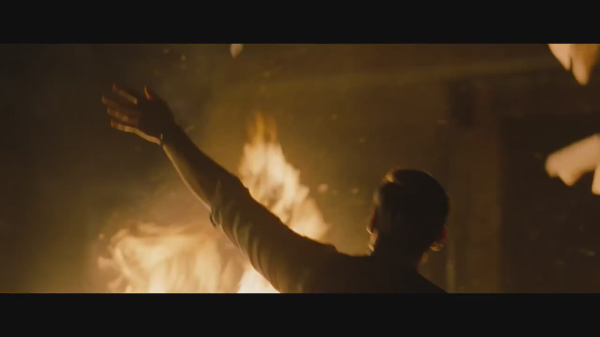
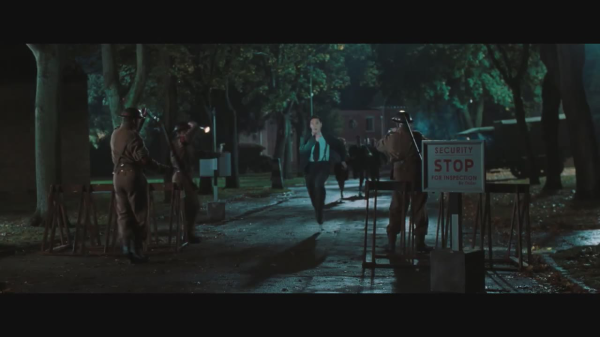
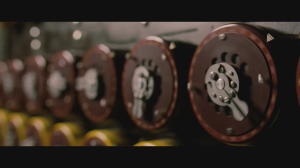

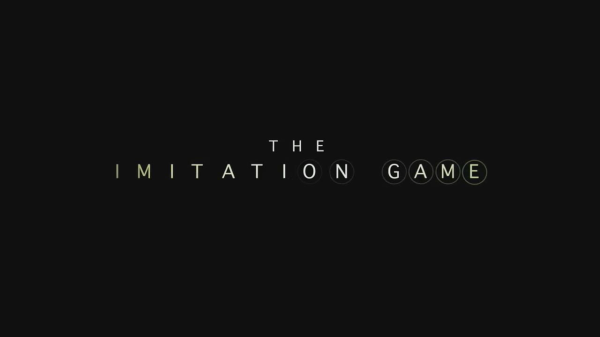
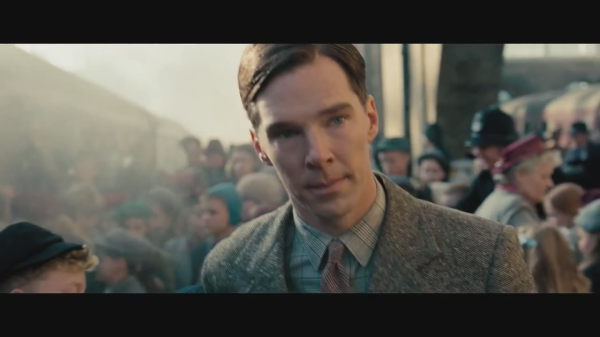
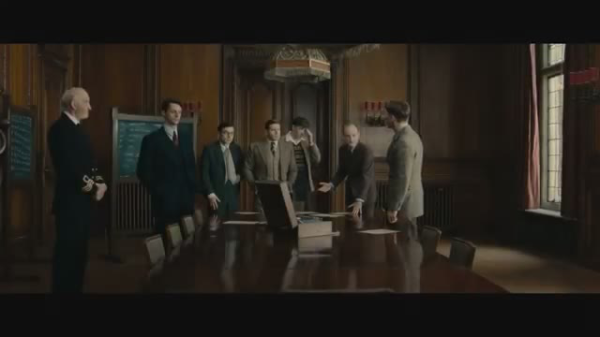
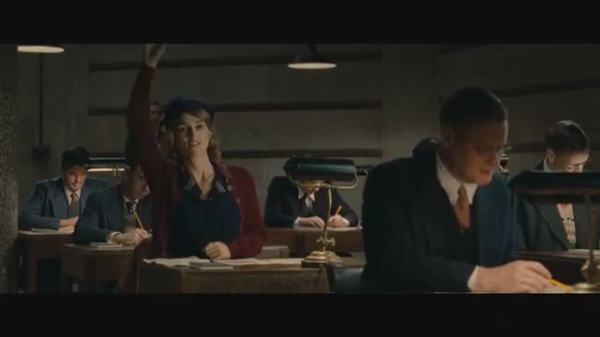
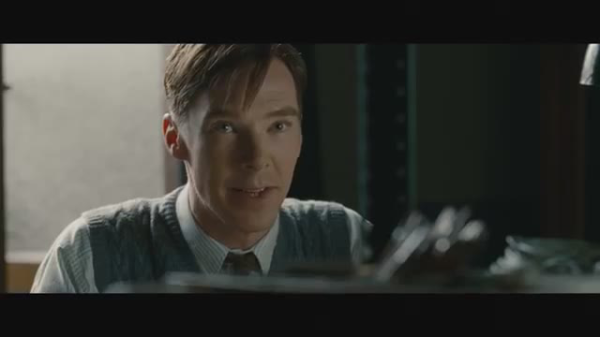
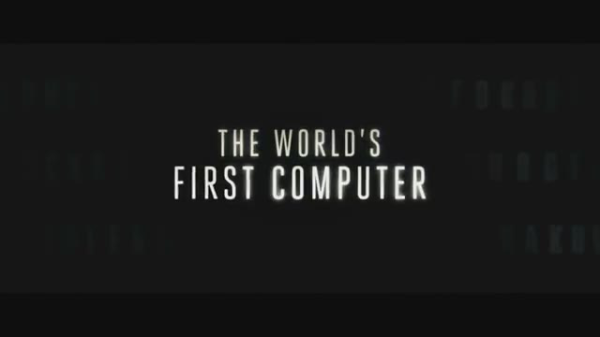
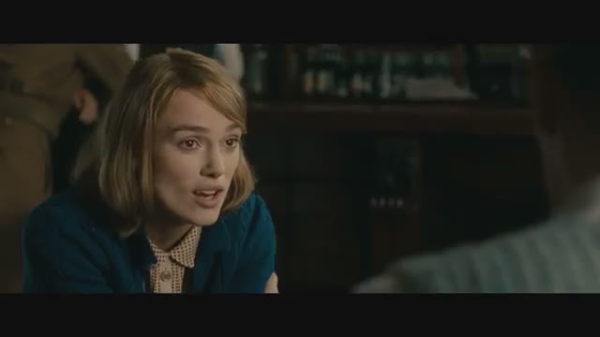
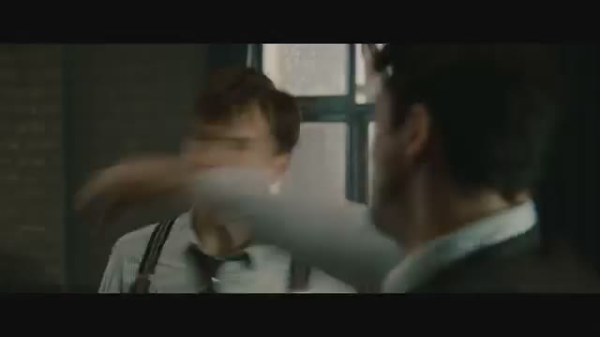
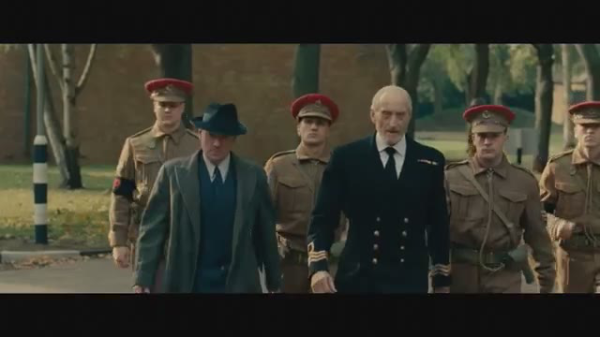
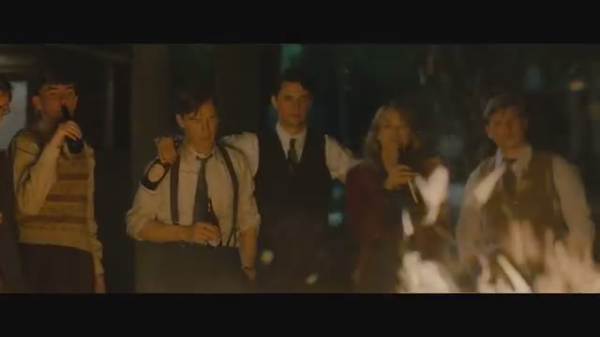
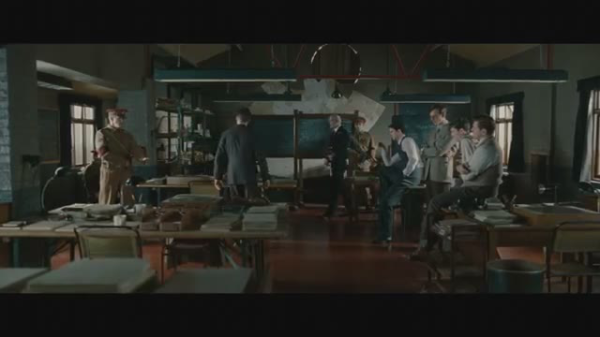
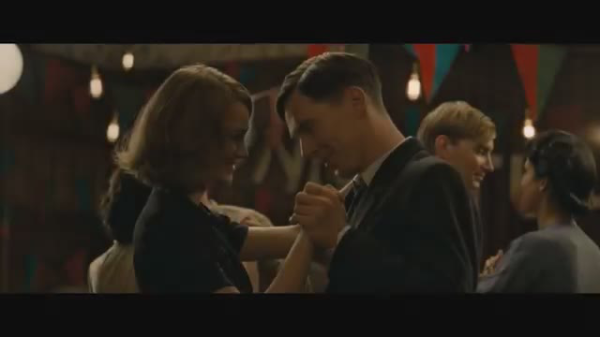
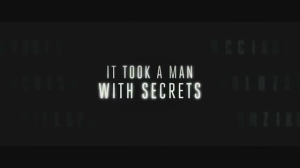
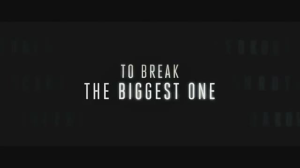
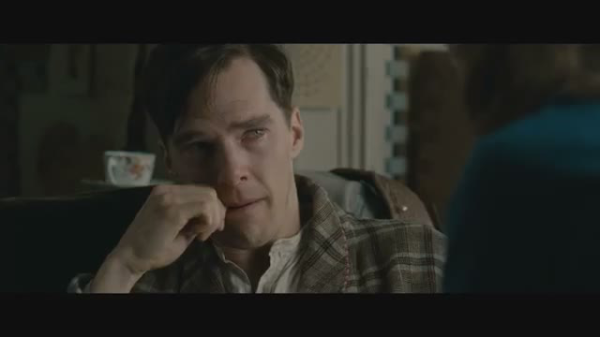
Peter Hilton! (cf http://ncatlab.org/nlab/show/Eckmann-Hilton+argument) Readers might be interested in this talk by him: http://www.colossus-computer.com/hilton.htm
Great review! It’s nice to see a knowledgeable yet not unduly down-putting review. The AMS Notices used to have reviews of pop math books, novels involving math, and the like, and they were almost always negative. Mathematicians have a tendency to focus on small mistakes, as if like a proof a work of fiction becomes ‘invalid’ if it contains an error.
A review of “The Imitation Game” will appear shortly in the next issue of the Newsletter of the Association for Women in Mathematics. The Media Column of the AWM Newsletter publishes reviews of films, TV shows, plays, digital and social media, etc., with a focus on issues concerning women in mathematics. Those who join the AWM get the Newsletter for free!
I find it very sad that in yet another international movie about Enigma the work of all the Polish mathematicians is completely omitted. As you are obviously a very knowledgeable individual on the matter, could you please comment on this? I do not know enough on the topic to be able to say whether complete omission of people like Marian Rejewski, Henryk Zygalski or Jerzy Różycki is historically accurate or not.
That’s a very good point!
There is no conspiracy against the Polish code breakers. They first did their work between 1932-1939. They did break army and air force Enigma, but not naval Enigma. Also their army and air force ideas were fragile and likely to stop working (as they did by May 1940). Turing had to find a way to break the naval Enigma and, ideally, a less fragile method which could also be used on army and air force Enigma. This is what the film is about.
The Polish code breakers, meanwhile, had escaped to France and continue to work on Enigma there, which is the period when this film is set. They did later come to Britain too but did not work with Bletchley Park.
Sir, thank you for this information. I’d like to add that the Poles’ achievement was nevertheless remarkable – they weren’t the only ones trying to break the code at the time. They passed the information – copies of Enigma – on to the French and the Brits in 1939. On the ground, it meant having access to the plans for air raids in Battle of Britain, for instance. To quote Welchman of Bletchley Park, “Ultra would never have gotten off the ground if we had not learned from the Poles, in the nick of time, the details both of the German military Enigma machine, and of the operating procedures that were in use.”
If the Polish built a bombe machine before Turing built his, and they did, then how can it be claimed that Turing built the first computer? Even if Turing didn’t stand on the shoulders of giants, he had a major head start from the Poles.
You could say they put him in… Pole position?
Indeed Turing (and more broadly Blechtley Park and Gretz-Armainvilliers, the French cryptanalytic center in 1939-1940) had a major head start from the Poles (moreover the French had a spy within German headquarters, who supplied them with a regular delivery of Enigma keys). Note that neither the Polish nor the Blechtley “bombe” was a computer – they were specialized statistical machines. Moreover it was not Turing, but Newman and Flowers, who designed Colossus, the electronic machine which can claim to be the “first computer”.
As a young man Turing had conceived of a hypothetical machine, called a Universal Machine, which could run any computation. All it needed was a set of instructions – if you give it a different set of instructions and it would perform a different job – that’s what a computer does, like apps on a smartphone.
Sorry if this is pulling up old comments, but I was under the impression that Marian Rejewski did in fact end up at Bletchley Park. He didn’t get to work on Enigma when he got there, though.
According to Rejewski himself (W Stulecie Urodzin Mariana Rejewskieco [2005], p.153) he was at Boxmoor. Many years later there were Poles from his unit still living nearby and I visited them c.1995. No mention of Bletchley in the book, nor had the Poles heard of it during the war, they said.
“Fragile”, what the hell is this suppose to mean?
According to Simon Singh’s “The Code Book”, the Brits were 10 to 15 years behind the Poles when they showed up in Warsaw in the summer of 1939 to be handed, gift wrapped, a working enigma, a working “bombe” computer, and the algorithm used to crack enigma.
BTW, the “bombe” was named after an ice-cream dish served at a Warsaw cafe.
I defer to expert advice, but we ate ice-creams called ‘bomba’ in Poland. I had imagined that Gustave Bertrand would naturally have translated this into ‘bombe’, which term was and is used for such ice-creams, both in France and in the more up-market ice-cream salons this side of La Manche.
I was told the Poles were not at BP because the Germans might apply pressure to their families in Poland. Some of them worked at another unit near Hemel Hempstead, where I met some of them.
Yeah but nobody says that there was different enigma’s types of codes. In the movie they just talk about enigma code so it looks like the Brits did all the work by themselves.
And from the movie I find that there was more conspiracy about Turing beeing gay than about all “naval enigma”. ;)
Rejewsky had deduced the wiring of the 3 rotor Enigma what made this possible. The Polish had constructed the bomba a electromechanical machine (several Enigmas connected toguether roughly speaking) that was capable of breaking Enigma far before Alan Turing had been involved with Bletchley Park.
Just before Poland invasion they surrendered all what they have don to the british
But several times the German changed the procedures, an the abwer and navy Enigmas had more rotors. In 1939 for instance they began to connect more wires to the steckerbrett (plugboard).
Is at this time Turing begins to be important. Turing invented the bombe, a much more sofisticated machine that would resist some of the changes in procedure (not sending the message settings twice in the beginning of message e cyphered with day settings for instance).
The machine was based in identifying cribs. some words or patterns repeated on and on in military messages (something like from general y to general x, or whether forecast for today).
So Polish mathematicians and intelligence was fundamental, but wouldn’t be enough on its on. Credit must be given to the polish no only mathematicians, but military intelligence and leaders to grasp the situation and what needed to be done. But Turing contribution and genius is undeniable.
I think the draconian British laws about secrecy (some WW2 stuff is secret till this time) helped to dim the Polish participation.
The movie without showing leading role of a 3 polish mathematicians in Enigma decrypting is a pure joke !!! and not worthy to spend a single penny to watch. It seems like the Brits steel can’t swallow that foreign soldiers were much braver than British fighting the battle of Britain. Yes bloody foreginers…..https://www.youtube.com/watch?v=ptijNcDanVw
Hello Mateusz: I share your disappointment and frustration regarding the omission of any mention of the Polish mathematicians in the movie, “The Imitation Game”. During the war the British and American governments had to protect sensitive and vital information in order to win the war, so the truth never made it to the history books. Marian Rejewski, Jerzy Różycki , and Henryk Zygalski were the first to crack the Enigma Code. This is a fact, and the only people who knew about it, apart from a few top leaders of the Polish Underground, were Churchill and Roosevelt. The British and American governments were determined to keep this a secret because of the shame it would bring – that they both betrayed Poland into the hands of Stalin. If you want to read more, please check out this website: http://www.codesandciphers.org.uk/virtualbp/wartmbp.htm#poles
The site was created by the late Tony Sale, Curator of the Bletchley Park Museum, UK.
Also please visit http://jproc.ca/crypto/enigs1.html (The Enigma: A Polish View)
Or you can read the book “The Enigma: How the Poles Broke the Nazi Code” written by Wladyslaw Kozaczuk, and Jerzy Straszak.(Hippocrene Books, 2004) ISBN 078180941X, 9780781809412
It is not a secret anymore, but it takes time to correct historical perspectives.
Esther, who told you the late Tony Sale was Curator at the Bletchley Park Museum?
Y’all realize this movie was about Turing, right. The context was his work on Enigma. A lot of people didn’t get “their due”. I am watching a documentary on George Welchman, who didn’t factor into the movie, if memory serves.
Actually, Turing’s original imitation game had the machine impersonate a woman, not a man. And the criterion for intelligence was that the machine had to do at least as good a job at it as a man would do. Which may make one wonder if Turing’s own gender issues had anything to do with the design of the test.
Benedict Cumberbatch has publicly commented that there was no need to refer to Turing’s homosexuality or his sex life as it was “obvious.” Well i couldn’t disagree more: It was the reason behind his tragic death and so this film seems to be half a story. I am not saying it’s a bad film, they just disregarded the human interest part of it – which IS IT and the reason the Code was broken. Unlike Turing it doesn’t sound like Hollywood had the balls to me. Hollwood strikes again.
Couldn’t disagree more with Mark Nolan. I work with a lot of pupils in primary schools (ages 8 to 11) doing things with and about computers and one of the big issues is that far too much is made of Alan Turing’s homosexuality, so much, otherwise excellent, material is out of bounds for pupils at that age. A straightforward film that kept to the real story of why Alan Turing deserves his place in history would be fantastic. As it is, with, I believe, a PG-13 rating I’ll need to see the film before I even mention it and even then will have to say to pupils it would be worth their while watching it in a few years’ time (if, of course, their memory of what I said stretches that far). Shame! In general, sessions on simple cryptography and simple computer programs to help with it are some of the most popular and rewarding that I run and a film like this could have been a huge support.
Now that you have seen the movie, are you going to recommend it to your students? I would (but I’m not a teacher).
Turing’s mother was of the view that his death was an accident. This would fit with other information.
Ref: Sara Turing – Alan M. Turing [2012 edn, pp.117-118]: ‘He had obviously cooked and eaten his late dinner, and, in his customary way, he had left the used cutlery and silver standing in a jug of water to be dealt with by her. On his writing-table ready for the post were acceptances of invitations for the near future, as well as tickets for the theatre, to which he was to take friends that very week. In his study were new socks, just bought. All, indeed, pointed to normal arrangements for the time ahead.’
Turing’s irregular methods of conducting experiments – including the electrolytic synthesis of potassium cyanide – had caused concern among his acquaintance; one had refused to take part in one experiment.
There are other theories abounding – only yesterday I was trying to dissuade a friend from a theory that Turing was murdered by J. Edgar Hoover because he was a risk to the United States.
It is the old story of the man who was killed by the bus – one person sees him fall, the next sees him deliberately walk in front of the bus and a third sees him pushed. Conspiracy theorists of the world, unite – you have nothing to lose except your delusions.
I couldn’t disagree more. When I work, we do not talk about my sexuality and what I am doing. We are concentrating on the project at hand.
Um, sexuality did not make him a genius, a genius did not make him homosexual. I am tired of bringing in sexuality in everything just for the sake of it because it is irrelevant. Makes me love Cumberbatch more for speaking his mind. This heavy handedness and shoving sexuality is going to backfire and people are going to push back.
“Like”
Thank you for this reply/comment.
We need to get away from things that are irrelevant to the story, and this was exactly why I loved The Imitation Game so much. It did not dwell unnecessarily on unwanted distractions and focused on the genius of Alan Turing! This is one of the best films I have seen in a long time, a film which conveys the story without needing to get into anybody’s bedroom!
Again, another film about Enigma, that doesn’t give justice to Polish mathematicians who managed to break Enigma codes already in 1933 and also created replicas that at dawn of IIWW were handed in to the French and British Military Intelligence together with all documentation of works of the Polish Cipher Bureau upon which Ultra had its foundations laid. A shame, really.
True. It would be enough to mention that the device used by Alan Turing was based on the cryptologic bomb designed by polish mathematicians. Despite all the details, it’s a propaganda campaign. Definitely I wouldn’t recommend that kind of movie.
David Nutting, I couldn’t disagree more. I’ve just finished the Andrew Hodges bio of Turing, which is the most complete and reliable one available. He makes it very clear that Turing’s sexuality was as much a part of his self-image as his mind was. I agree that 8 year olds don’t need to know details of his sex life to understand the tragedy of his arrest, punishment, and suicide. But if you’re going to teach about Turing’s life and not just his work on Enigma, you have to be honest about what his own country did to him. If he had been hounded and humiliated to the point of suicide because of race, religion, or nationality, David, you’d have no problem teaching about that, would you? But acknowledging someone’s sexuality is not the same as discussing intimate details about their personal lives. In fact, I think the movie is vulnerable to charges of straightwashing. (We saw it last night as part of a film festival.) But don’t worry, there is no sex and no skin in this film. The rating is probably for language.
Re: the Polish work pre-Turing: the movie isn’t about Enigma. It’s about Turing’s life, and as such, doesn’t pretend to give a detailed history of the machine or its cyphers.
I saw the film last night and was a bit disappointed with the omission of so much of Turing’s work both before and after the war. His paper on Computable numbers wasn,t mentioned nor some of the foundation work on non linear systems. I understand that the film is meant for entertainment primarily so can hardly blame the director if he wished to avoid the arcane. But what is arcane to most of us is what was central to Turing and there must have been some way the breadth of his work could have been conveyed. I agree that the Polish contribution to the breaking of Enigma was practically ignored. As for the role of played by Kiera Knightly, whilst based loosely on fact, this was vastly overplayed …but pretty faces put bums on seats.
The most ridiculous section of the film in my opinion is that which deals with the clue to the first 6 letters of the code picked up by the clerical section (based on fact) leading to the instantaneous success of the code breaking in a few minutes and then the immediate appearance of all the ships of both sides in the Atlantic on a huge chart. This is then followed by Turing deciding how to use the code to conceal the fact of its being broken from the Germans and therefore sacrifice some parts of the convoy. All in a few minutes. As far as I am aware Churchill (aided no doubt by MI6) came to this sort of agonising strategy. Turing was not involved in such strategic decisions.
If the film brings the name of Alan Turing into the mainstream then great…but there must be some way to follow this up with the “true” story of his achievements. a challenge I admit and one best avoided by “Holywood”
In The Movie, Turning claimed that it wasn’t God that Won the War- it was him. It was both. The Polish got a rubbish stero-type- brilliant people. As a Christian- I love gays and hate the sin- as our beliefs. It’s not so much nature vs nurture, rather “love” that fueled The passion for his cryptology. That debate is for other vehicles of communication. Cheers!
The Nazis were also Christian
Oh, puh-lease.
I watched the film last night, leaving just after the ridiculous scene in the “map room” referred to by Shaun – the comments contained in this blog are all relevant and perhaps I will take another look now I know to take all facts with a lump of sodium chloride! Particularly irked by the portrayal of Denniston as a fool – he most certainly was not! It is almost that the filmmakers were unaware they were dining on a surfeit of facts and yet still required preposterous fictions to fit their pre-conceptions.
Very interesting “pre-release review.” One minor comment – below the still shot entitled “Avengers Assemble!” you wrote:
“This is sort of a line up of Turing’s research team. From left to right we have John Cairncross (played by Allen Leech), Turing (Cumberbatch), behind Turing is Jack Good (James Northcote) (sorry Jack Good, don’t blame me, blame the person who blocked the scene), Peter Hilton (Matthew Beard), Hugh Alexander (Matthew Goode), and Joan Clarke (Knightley).”
You mixed up the characters (and actors playing them), Peter Hilton (Matthew Bea
rd) and Jack Good (James Northcote). Peter Hilton is the character obscured by Turing. He worked with Turing when he was only 18 years old – YES! His character invariably wears a Fair Isle slipover in the film – you can just see a bit of
the patterned shoulder in the still. Such garments were very au fait in WWII,
as I can testify from direct observation of non-combatant relatives. But surely
your sympathetic “apology” would be better directed at the obscured actor (i.e.
Matthew Beard), rather than the character being played?
Coincidentally, my humanist partner, then herself a very bright, fast-tracked 18
year old, took a Cornell undergraduate group theory course from Peter Hilton in the 1960s and thoroughly enjoyed it.
I saw the thing over the weekend. It has precisely ONE virtue: Now, when I see the “Based on a True Story” tag, I know that I’m in for something with barely any resemblance to anything that really happened.
Honestly, this is a **terrible** movie, with a script so full of cliches and incoherence that it could have been written by a computer (maybe one of Turing’s Bombes?). Along the way it manages to insult pretty much everything it touches — Bletchley Park, British intelligence, Turing himself — along with the intelligence of the audience. In particular, Turing is reduced to a semi-autistic nerd caricature (tweed version).
One quick sample, to give some idea of just how supremely dumb this movie is: About midway through, we see Turing in a bar with the cool codebreakers. (Naturally, they’re all clods, and at first they don’t like our hero, because he’s a semi-autistic nerd genius, and they can’t hope to grasp his genius. But by the time this bar scene rolls around they accept him as a **lovable** semi-autistic nerd.) A chance remark suggests that certain words sometimes recur in the German message traffic that they’re monitoring.
It is ONLY THEN that it occurs to Turing, one of the greatest mathematicians of his or any time, that perhaps repeated patterns might be useful for breaking codes. At this point he runs off to Bletchley, dimwit sidekicks trailing after him, and in one go breaks the German codes. This is not satire — parody is impossible with a movie this dumb. This is what the movie portrays.
Turing’s life, and the history of Bletchley Park are challenging subjects for movies, because much of the action is so abstract, hard to convey in a script. But it’s still very rich, very dramatic material. There’s absolutely no excuse for mangling the history, and effectively slurring the actual people and institutions involved. And maybe the worst thing about this movie is that many people are going to confuse its silliness with what really happened.
I watched the movie yesterday and fully agree with the comments of sglover.
The audience will believe this movie reflects how it happened, it does not understand that the script of the movie is like a layer which condense an expanded story into an two hour movie. In such a script, the Truth will suffer.
To mention a mathematical error… When Allan and Joan are lying on the grass and a notebook is shown, the RSA algorithm is written in it, when it was first published in 1977.
That is a top notch spot! Bravo!
Maybe the director put it there on purpose so math geeks could feel superior when they noticed it.
“Matthew Goode as Hugh Alexander looks confused. That might be because he was head of the John Lewis research department at the time and didn’t reach Bletchley till 1940”—-HILARIOUS!
Why was Gordon Welchman not included in the charactors in the movie.